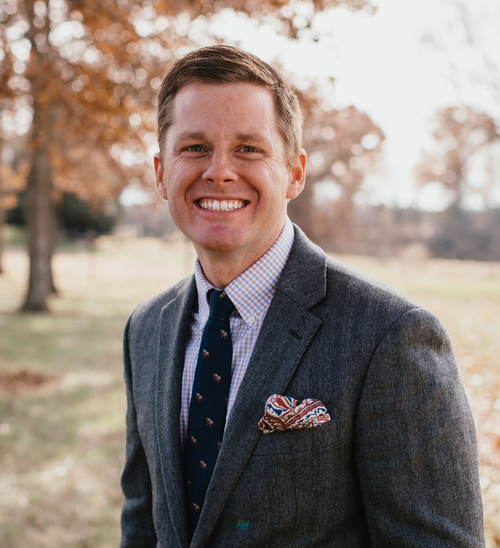The Whistler

The Whistler
2 Samuel 11:26-27
26 When the wife of Uriah heard that Uriah her husband was dead, she lamented over her husband. 27 And when the mourning was over, David sent and brought her to his house, and she became his wife and bore him a son. But the thing that David had done displeased the Lord.
26 When the wife of Uriah heard that Uriah her husband was dead, she lamented over her husband. 27 And when the mourning was over, David sent and brought her to his house, and she became his wife and bore him a son. But the thing that David had done displeased the Lord.
Psalm 32
1 Blessed is the one whose transgression is forgiven,
whose sin is covered.
2 Blessed is the man against whom the Lord counts no iniquity,
and in whose spirit there is no deceit.
3 For when I kept silent, my bones wasted away
through my groaning all day long.
4 For day and night your hand was heavy upon me;
my strength was dried up as by the heat of summer. Selah
5 I acknowledged my sin to you,
and I did not cover my iniquity;
I said, “I will confess my transgressions to the Lord,”
and you forgave the iniquity of my sin. Selah
6 Therefore let everyone who is godly
offer prayer to you at a time when you may be found;
surely in the rush of great waters,
they shall not reach him.
7 You are a hiding place for me;
you preserve me from trouble;
you surround me with shouts of deliverance. Selah
8 I will instruct you and teach you in the way you should go;
I will counsel you with my eye upon you.
9 Be not like a horse or a mule, without understanding,
which must be curbed with bit and bridle,
or it will not stay near you.
10 Many are the sorrows of the wicked,
but steadfast love surrounds the one who trusts in the Lord.
11 Be glad in the Lord, and rejoice, O righteous,
and shout for joy, all you upright in heart!
1 Blessed is the one whose transgression is forgiven,
whose sin is covered.
2 Blessed is the man against whom the Lord counts no iniquity,
and in whose spirit there is no deceit.
3 For when I kept silent, my bones wasted away
through my groaning all day long.
4 For day and night your hand was heavy upon me;
my strength was dried up as by the heat of summer. Selah
5 I acknowledged my sin to you,
and I did not cover my iniquity;
I said, “I will confess my transgressions to the Lord,”
and you forgave the iniquity of my sin. Selah
6 Therefore let everyone who is godly
offer prayer to you at a time when you may be found;
surely in the rush of great waters,
they shall not reach him.
7 You are a hiding place for me;
you preserve me from trouble;
you surround me with shouts of deliverance. Selah
8 I will instruct you and teach you in the way you should go;
I will counsel you with my eye upon you.
9 Be not like a horse or a mule, without understanding,
which must be curbed with bit and bridle,
or it will not stay near you.
10 Many are the sorrows of the wicked,
but steadfast love surrounds the one who trusts in the Lord.
11 Be glad in the Lord, and rejoice, O righteous,
and shout for joy, all you upright in heart!
A Noble Act?
Only one loose end is left for David to tie.
When Bathsheba learns that her husband is killed in battle, she grieves. We can only assume that this is genuine. How could this young woman, living in this terrible lie, not feel an incredible weight of sorrow and guilt? But the crowning deception still remains.
In the Old Testament, when a man dies without an heir, it is the duty of a brother or near relative to take in the widow and produce a son for the deceased husband. This individual is called a “kinsman-redeemer,” and it’s the concept behind the beautiful story of Ruth and Boaz. David knew all this very well; Ruth was his great-grandmother. Since Uriah was a Hittite convert to Israel’s faith, he has no brother in Israel to step into this role for his widow. So the king himself volunteers. It would have appeared to the nation like a noble act of love: the king righting this wrong for his fallen soldier.
When Bathsheba learns that her husband is killed in battle, she grieves. We can only assume that this is genuine. How could this young woman, living in this terrible lie, not feel an incredible weight of sorrow and guilt? But the crowning deception still remains.
In the Old Testament, when a man dies without an heir, it is the duty of a brother or near relative to take in the widow and produce a son for the deceased husband. This individual is called a “kinsman-redeemer,” and it’s the concept behind the beautiful story of Ruth and Boaz. David knew all this very well; Ruth was his great-grandmother. Since Uriah was a Hittite convert to Israel’s faith, he has no brother in Israel to step into this role for his widow. So the king himself volunteers. It would have appeared to the nation like a noble act of love: the king righting this wrong for his fallen soldier.
A Low Haunting Whistle
When the mourning period ends, David again “sends” the royal limo for Bathsheba, just as at the beginning of the story. Again, his servants bring her to David’s house. Only this time, she becomes his wife. Probably no one thinks much of it when she bears the king a son a bit prematurely. Israel just sees this as the next of David’s wonderful acts of hesed love, a heartwarming sequel to the story of Ruth. And David can congratulate himself for pulling it off. He kept his world intact. He’s still in control. Now he can sleep.
Or can he? I had an art teacher in middle school who would play old radio shows for us while we drew in his class. One of the shows was called “The Whistler.” It always told a story of someone committing a crime and then covering it up. But “The Whistler,” the narrator, always knew. He would taunt the characters in the story: “But you didn’t think of everything, did you Frank? You forgot all about that handkerchief that fell out of your pocket back at the cabin…” As the criminal’s conscience began to work on him, the narrator would give out a low, haunting whistle. David is hearing that right about now.
Or can he? I had an art teacher in middle school who would play old radio shows for us while we drew in his class. One of the shows was called “The Whistler.” It always told a story of someone committing a crime and then covering it up. But “The Whistler,” the narrator, always knew. He would taunt the characters in the story: “But you didn’t think of everything, did you Frank? You forgot all about that handkerchief that fell out of your pocket back at the cabin…” As the criminal’s conscience began to work on him, the narrator would give out a low, haunting whistle. David is hearing that right about now.
The Concealment of Sin
We don’t have to wonder what it was like to be David during this season; he tells us all about it in Psalm 32. On the other side of his repentance, he remembers how utterly miserable it was to conceal his sin and to live out of fellowship with the Lord. God’s people—born-again, godly people—can sin horribly. But they cannot sin happily.
Of all the vivid characters in this story, the most important is conspicuous by his absence. We do not hear a single reference to God until David has finished spinning his tangled web. And then we reach the final line: “But the thing David had done displeased Yahweh.” Finally, after all of David’s high-handed “sending,” chapter twelve opens with Yahweh ready to do some sending of his own (12:1).
Of all the vivid characters in this story, the most important is conspicuous by his absence. We do not hear a single reference to God until David has finished spinning his tangled web. And then we reach the final line: “But the thing David had done displeased Yahweh.” Finally, after all of David’s high-handed “sending,” chapter twelve opens with Yahweh ready to do some sending of his own (12:1).
The True Redeemer
This story offers a warning to us, no question about it. But it also extends an invitation. After all the lines we have crossed, the lives we have crushed, and the lies we have created, there is a God who sees and who evaluates. But he has also “sent” a true redeemer to rescue us. Jesus Christ is more faithful and noble than Uriah the Hittite. He came down from heaven to knowingly deliver his own death sentence, for you. At the cross, he laid down his life, so that the worst of your sins could be covered, and you could be made clean: “For our sake, he made him who knew no sin to be sin, so that in him we might become the righteousness of God (2 Cor 5:21).”
FOR THE NEXT INSTALLMENT, SEE:

Article by Eric Smith
Senior Pastor, Sharon Baptist Church
Senior Pastor, Sharon Baptist Church
Recent
Archive
2025
January
IntroductionHold That ChampagneA Lotta ClassThe Patience God HonorsVibrantly DifferentReal-Life GodlinessProblems and PromisesGod's Dark RoomUltramarathonThe First Hundred DaysEstablished by GodPriority and PresumptionBefore the LordOur Plans, God's PlansMovie MontageThe Dead Dog's GospelOn Serving the KingIcarusWhat a Tangled Web We WeaveThe WhistlerFoundGrace to Go ForwardThe Reaping BeginsThe House Caves InSoap OperaBroken People, Broken ResourcesThe Con is OnWaking UpDoes This Old Thing Still Work?God of the Dark DayKeep GoingSo David Went On
February
2024
June
September
Weather VanesTotal CommitmentStable?Peter's BlessingAll the Power You NeedThe PurposePrecious PromisesThe Great EscapeAttitude & EffortThe Quest for WisdomA Christian's Growth ChartLet the Check-Up ContinueOptional Additive?ImpairedChosen, Called, and ConfirmedA Rich EntranceReminders NeededHow To Stay The Course Of WisdomPutting Off the TentMinistry's GoalComing AttractionsA More Sure WordCarried AlongAlert but AssuredYellow AlertBurning Ring of FireOf Dogs & PigsStirring RequiredThe Facts About Jesus' ReturnLike A ThiefHome At LastHow Will He Find You?Not Rivals, But Friends